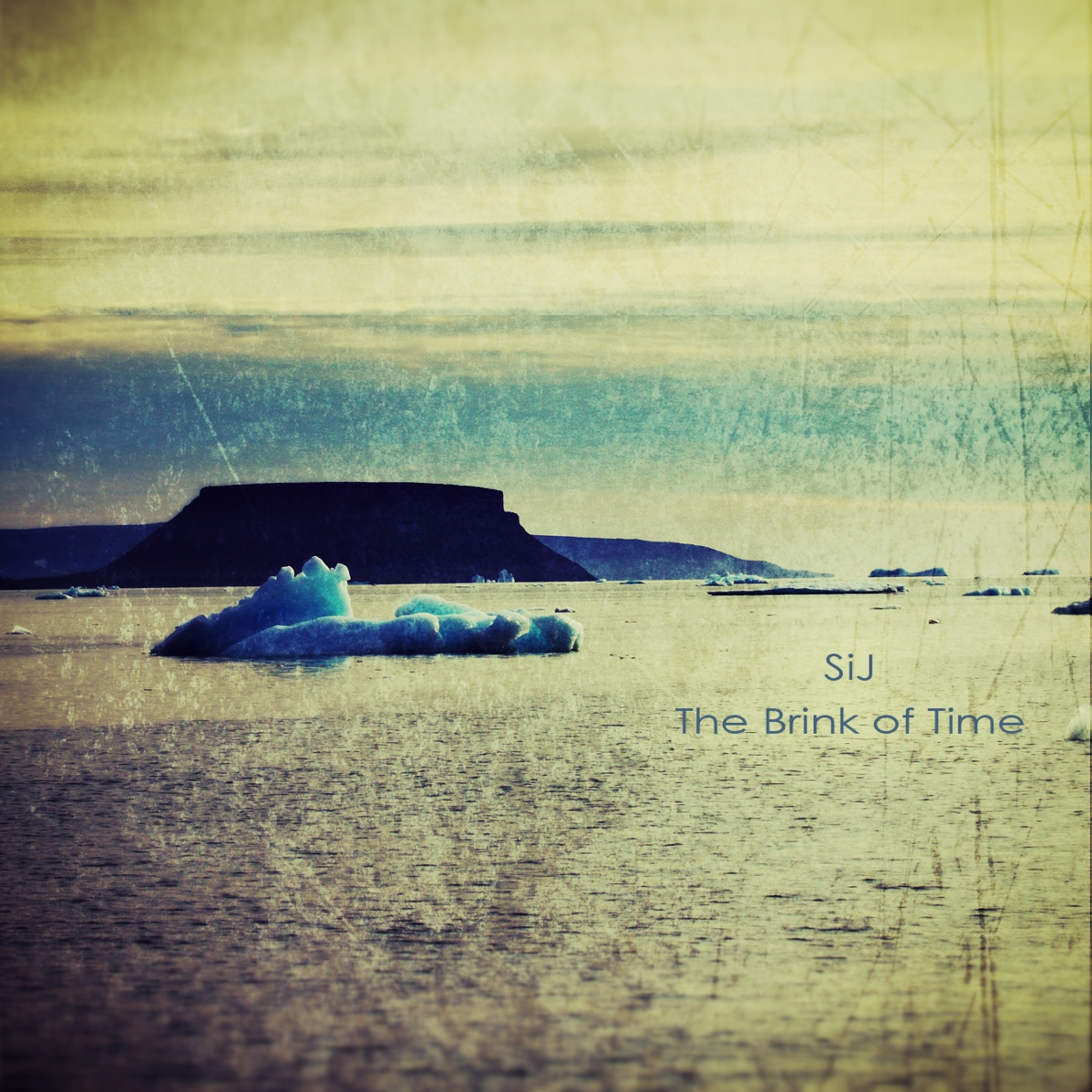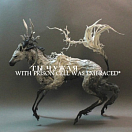 Moscow's Danila Plee (aka PLEE!) has announced the publication of a new seven-track recording, entitled "Source EP." There's very little in the way of accompanying materials, in fact the author offers nothing more than a single sentence. "If anybody was wondering wuzzup, here's the last year [expressed] in a few short tracks." With a running time of twenty-five minutes, the EP includes artwork in the style of Siberia's Dopefish Family, Moscow's Hyperboloid Records, or Latvia's Kodek. All of those projects look back to the earliest days of the Slavic web and find endless romance in lo-fi graphics. The crude colors and angular shapes of old computer games recall - over and over - the promise of a lost boyhood or a callow democracy.
Moscow's Danila Plee (aka PLEE!) has announced the publication of a new seven-track recording, entitled "Source EP." There's very little in the way of accompanying materials, in fact the author offers nothing more than a single sentence. "If anybody was wondering wuzzup, here's the last year [expressed] in a few short tracks." With a running time of twenty-five minutes, the EP includes artwork in the style of Siberia's Dopefish Family, Moscow's Hyperboloid Records, or Latvia's Kodek. All of those projects look back to the earliest days of the Slavic web and find endless romance in lo-fi graphics. The crude colors and angular shapes of old computer games recall - over and over - the promise of a lost boyhood or a callow democracy.
Plee's imagery, shown partially below, includes a host of cultural references, all the way from Asian toys that flooded the post-Soviet marketplace to VHS logos, an early Mac interface, and the concomitant workings of puberty. None of these social forces, however, are subjected to wordy interpretation. In the past, when asked to analyze his output, Plee has always preferred diligence and/or reticence. "This is just some music I wrote… What on earth can I say about it? Just try and lock yourself in a room, smoke some pot, and relax before listening to this EP for the first time. If you feel like dancing... you can dance. Nobody cares! Have a good time."
Sure enough, whenever he does make a social statement, Plee foregrounds the overlapping concerns of hard work and hard-won escapism. Some places make it especially difficult for boyish desires to express themselves. "When you play three concerts over a single weekend, your view of [your own] music changes considerably. When autumn arrived [after those demands were over], I was finally able to take a break and consider what I wanted to hear from myself. From an archive of 150 tracks and [many] beats, I chose the ones that together form a coherent sound. I wanted to make something with an unhurried, yet 'melting' air - just like my favorite ensemble, Boards of Canada. I wanted to make something autumnal."
Why the tendency to publish in silent celebration of some elusive hedonism? One clue emerged last week when Plee uploaded a social critique of modern Russian society by film director Andrei Konchalovsky. Turning to a wealth of statistics regarding domestic life expectancy, divorce, orphanages, homes for the elderly, substance abuse, and institutional corruption, Konchalovsky calls for new leadership. He has especially kind words for Peter the Great - who died in 1725. The wait for social improvement will clearly be a long one. Better to nurture subjective pleasures than social plans.
As we've often mentioned, this sense of social isolation has been an enduring theme in music by Speck, otherwise known as Osmenog and/or Nikita Bondarev from Novosibirsk. Instead of detailed portraits or self-statements, he prefers to upload countless images of northern, windswept vistas, most of which are manifest proof of Russia's tendency to separate, rather than connect individuals.
For that reason, the FUSElab label recently spoke about Speck's "profound and touching sonic textures, straight from the Siberian taiga." The world's largest biome stands in for somewhere even greater - in the middle of which "we are all" supposedly destined to experience solitude, even isolation. Authorial, hopefully independent creation starts here to look delusional. Modesty is a better option - once again, as suggested by FUSElab: "Can you imagine becoming a tiny dot... in the middle of a huge, leveled landscape?"
Following Speck's last release, one listener remarked: "What is there to say?" As with Plee, there's no evident desire to discuss reality in a nation unlikely to be improved or altered by debate. Bondarev's most recent - and jolliest - statement online came recently with the start of a New Year. His faint optimism lay not in subjective hopes and desires, but instead in possible friendship and support systems. "Stay decent [in 2014], no matter the situation. In the meantime, I'm just as popular as ever... (I just told a lie)."
The newest EP from Osmenog, published in complete silence, requires a little background information. We turned to the artist, therefore, and he echoed Plee's conception of sound as refuge. "This is a very personal album. It's a lot more peaceful than my previous, nervous works. It's designed for those times when you need calm... when you're tired of running."
One of the more dramatic flights from social existence seen on FFM has been from WPCWE ("With Prison Cell Was Embraced"). This one-man project belongs to Nikita Tenetko, originally from Pskov, but now resident in Saint Petersburg. His earliest posts spoke, several years ago, of extreme poverty. No matter his residency in a larger city, the feeling of detachment would remain strong. One entry at Tenetko's Blogspot account read (in translation): "Cars pass by outside only rarely..."
Tenetko subsequently documented his home address, somewhat bizarrely, as Dickson Island - a small Arctic outpost on Russia's uninhabitable northern shore. It was impossible to distinguish metaphors from any objective information. In all likelihood, though, this mysterious mapping was probably just wordplay connected to a WPCWE EP, "Where's My Home," showing the influence of witch house and tagged - rather ominously - as "post-suicide."
This month - without any prior warning or PR materials - a new EP has emerged, called "Ty Chuzhaya" (You're Someone Else/Alien/Distant"). A number of depressing synonyms are possible. A related scribble on one web resource tells us these tracks reflect "an underground gloom, soaked in hatred. This is the music of people who are completely unknown."
And yet - somehow - a faint hope in private dignity remains. Two tiny phrases emerge online, close to Tenetko's name. "Gaze above the stars. Feel more deeply than death."
It's this persistent tension or disconnect between self and other, citizen and civic norms, that leads to projects like SiJ (Vladislav Sikach from Sevastopol, Ukraine). Tags such as dark ambient, industrial, and drone are liberally applied. Sikach meets the generic expectations of those dour styles with field recordings taken from "mundane city streets and abandoned military or industrial facilities."
Again, in the context of such authorial reticence, Slavic reviewers, bloggers, and admirers provide most of the background to SiJ. On many occasions, these online authors imagine the locations that are evoked by Sikach's ambient instrumentals. They're always places of private, natural detachment. For example, we read about "the echo of semi-submerged caves that were formed by the delicate interaction of water, stone, and air. That same echo travels multiple paths before it becomes audible. Is it striving for a specific goal or simply dispersing, like the very first sound-wave?"
These abstractions grow in significance, given the faith in music to construct soundscapes that might counter ugly landscapes. Sound builds an alternative, gentler realm. "When we create music, it creates us. In the same way, we inhale in order to live - and exhale so that life might continue. The instrumentals from SiJ breathe in and out on a grand scale..." The closer one grows to noiselessness - and the further from raucous technogenic society - the better.
Sikach works with a graphic artist, Alena Perepadya, whose online profile contains a passing thought on the pros and cons of civic existence. In translation, one of those musings would be: "People age when they lose their sense of frivolity [or 'levity']." The melancholy social outlooks audible from Plee, Speck, Osmenog, WPCWE, and SiJ prompt them to desire solitude. Better still is the absence of people altogether; SiJ's audiences, as one example, equate abandoned, noiseless caves with an opportunity to exhale "and prolong life."
Put simply, these are four soundtracks to escapism, in the most direct and determined sense.
Ссылка на оригинал
A Growing Sense of Distance: Danila Plee, WPCWE, Osmenog, and SiJ
-
Слушать






